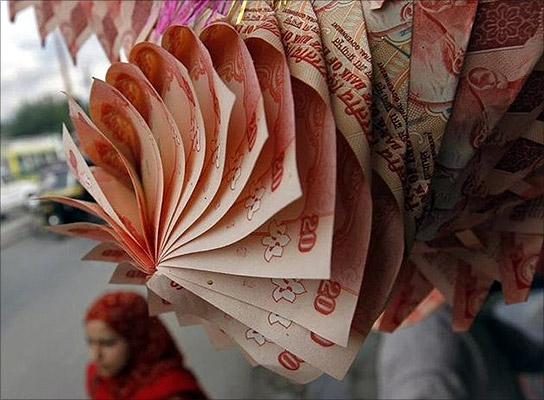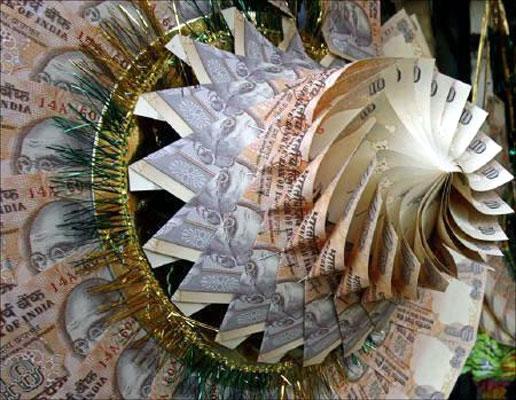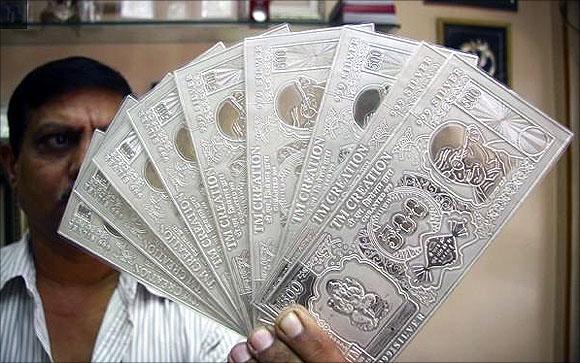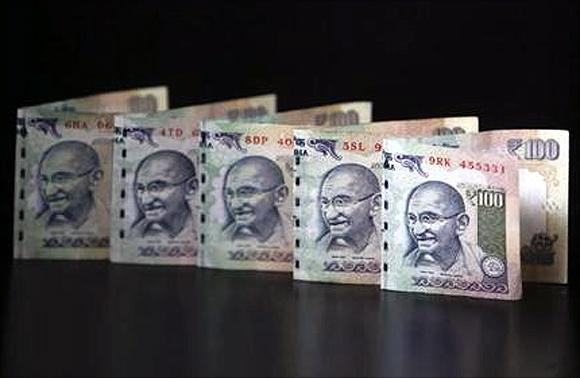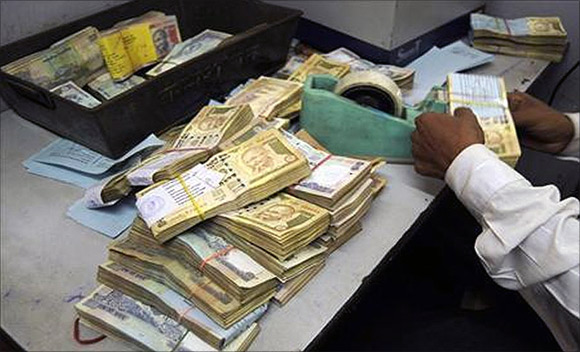 | « Back to article | Print this article |
ECBs: From easy money to double whammy
Rupee depreciation and a slowdown in capital inflows make it harder for business to service liability, while keeping pressure on the currency.
From being a cheap and ready source of capital, external commercial borrowing (ECB) is turning out to be a double whammy for India Inc.
While the rupee’s depreciation has pushed up the principal repayment cost in rupee terms, repayment of maturing ECB is likely to keep the currency on the downward path.
This, experts say, could start a downward spiral unless outflows on account of repayment are matched by fresh capital inflows.
Beginning 2004, the central bank has approved nearly $220 billion worth of ECB and foreign currency convertible bonds (FCCB), at the rate of a little over $2 bn a month. Nearly two-thirds of this amount was approved in the past five years.
Click NEXT to read more...
ECBs: From easy money to double whammy
Much of this ECB will come up for repayment this financial year, putting further pressure on the rupee. “The rupee held up its value thanks to copious inflow of capital in the past few quarters.
If this money flows out due to monetary tightening in the US, the rupee-dollar exchange rate would soon reflect India’s trading balance, which is not in very good shape,” says Raju Bhinge, chief executive, Tata Strategic Management Group. Since the beginning of 2012, foreign institutional investors (FIIs) have invested nearly $35 bn in the Indian equity market.
The equation has been worsened by a sharp3 rise in the import intensity of India Inc in recent years. In FY12, the top 559 listed companies – excluding oil & gas and banks – imported goods and services worth $83 bn at the current exchange rate, an eight-fold jump over 10 years.
In comparison, their forex earnings were only $57 bn in 2012-13, five times higher than the corresponding figure in FY03. Experts say it will be tough for many companies to service foreign debt on their balance sheet.
Click NEXT to read more...
ECBs: From easy money to double whammy
“Exports earnings provide a natural hedge against foreign currency exposure and make it easier for companies to service their foreign currency debt. In the current situation, it would be tough for companies to service their forex liability unless fresh capital inflows come to the rescue,” says Revati Kasture, head of research at CARE Ratings.
According to Reserve Bank data, the median repayment period for ECB has been around 69 months in the past six years.
So, ECB raised during the boom years of FY07 and FY08 would be due for repayment from this financial year. RBI approved nearly $55 bn worth of ECB in those two years, a quarter of all approvals granted so far.
Its recent depreciation will also push up the repayment cost in rupees, putting additional burden on India Inc’s stressed balance sheet. On average, the principal repayment cost is expected to rise by 25-30 per cent for a majority of the companies.
Click NEXT to read more...
ECBs: From easy money to double whammy
Nearly 85 per cent of these approvals were granted when the rupee was trading below 48 to a dollar and half came when it was in the range of 40-45. The blow will soften a bit for companies which have hedged their entire forex exposure but full hedging is costly.
“Money through ECB in, say, 2007 and 2008 (when the rupee was 40-45 to a dollar) will see the principal payments commencing in 2013. Those companies with unhedged positions would end up buying dollars at prevailing rate. This might push many into loss territory,” says a public sector banker.
The principal payments in many cases are back-ended. For a five-year ECB, typically this might be spread over the third to fifth year. In the current circumstances (weak rupee), the payment bill will grow substantially. Banks worried about adverse effects would prefer to take such cases for debt recast to avoid red ink on the balance sheet, an official said.
Click NEXT to read more...
ECBs: From easy money to double whammy
The sharp fall in the rupee means some importers availing trade finance will face hard days ahead. N S Venkatesh, chief general manager and treasury head, IDBI Bank, said the rupee’s fall from 54 to a dollar to 60 has been very fast.
“Those using trade finance (for imports) in foreign exchange without currency hedges will be hit hard. It is difficult to estimate the extent of impact. This being short-term finance, they might end up paying more to buy dollars for repayment. There is a tendency to keep positions open. Now, they are caught on the wrong foot. The effect might not be visible in the immediate future but weigh on their balance sheets in the next few quarters,” he added.
Others say many companies will be forced to roll over their ECB. “I don’t expect too much repayment in the current economic environment. Most companies would roll over their forex debt, either by raising fresh foreign debt or renegotiating the repayment terms with their lenders,” says Kishore Narne, associate director & head, commodity & currency, at Motilal Oswal.
